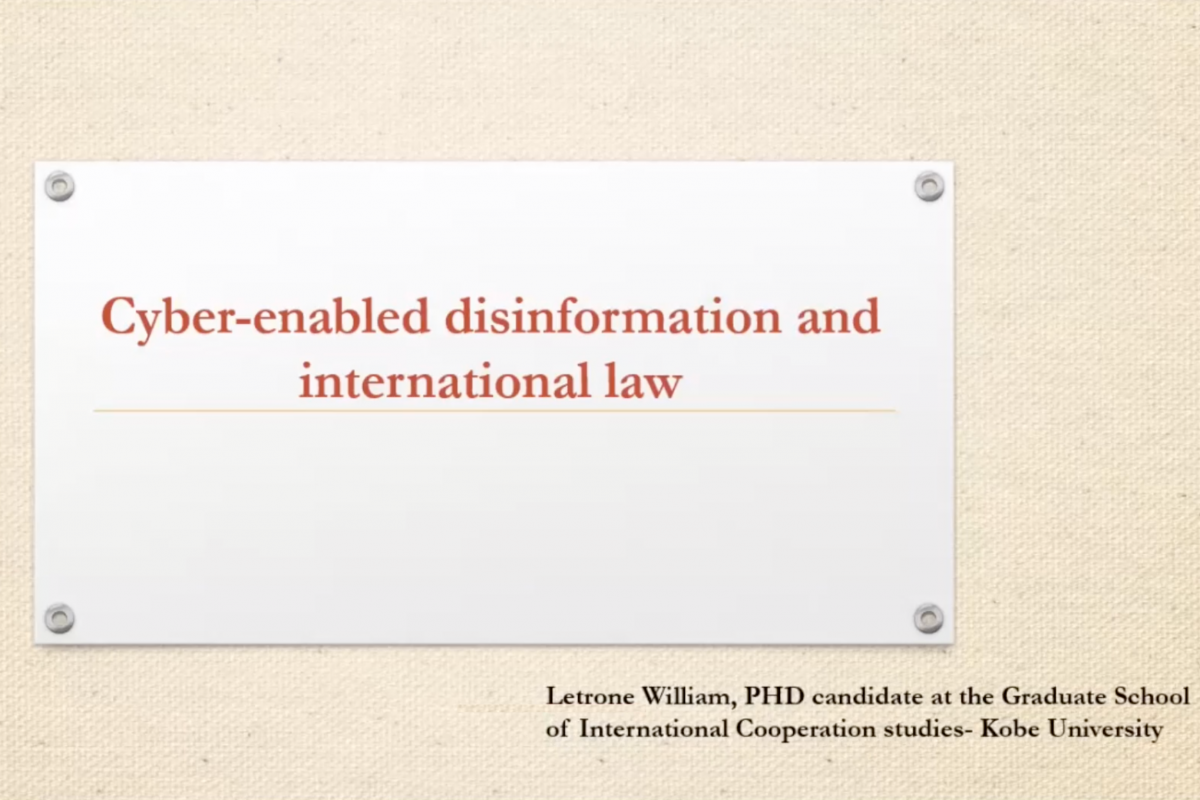Cyber-Enabled Disinformation and International Law
Völkerrechtliche Tagesthemen: Spotlight (Episode 25)
Cyberspace undeniably made our world smaller. But the resulting state of interconnectivity came at a price; a greater vulnerability to foreign influences and interferences. From a legal perspective, the capacity for states to act offensively through the medium while remaining undiscovered and unsanctioned appears to rest solely upon their ability to operate without crossing the traditional thresholds set by the non-use of force and the non-intervention principles. And therein lies the rub. These principles are not easily breached, and while other rules may very well prove efficient remedies against legal uncertainty in face of so-called “low-intensity” cyber operations, most remain deplorably underexplored. A case on point is that of state-sponsored online disinformation, on which this presentation focuses. Overall, it is argued that despite inherent difficulties pertaining to the characterisation of online disinformation, relevant rules already exist. In fact, key difficulties are not caused by a lack of relevant rules, but by the lack of indications regarding how to interpret and operate them in a context where illegitimate behaviours have never been so subtle, and where proxies and other auxiliaries are systematically used by state actors to carry out condemnable activities.
